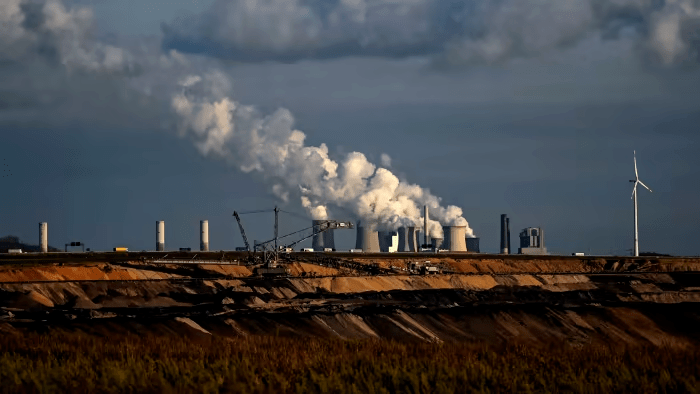Globalpu News: Since the outbreak of the Russian-Ukrainian conflict, the energy issue has been at the heart of the economic struggle between Russia and European countries. As Russia tightens its natural gas supply, Europe's "gas shortage" crisis is also intensifying.
Before the Russian-Ukrainian conflict broke out, the EU relied on Russia for 40% of its natural gas needs, while Germany's was as high as 55%. The recent reduction in Gazprom supplies has left a huge gap in an already tight global gas market.

Coal-fired power plant in Garzweiler, Germany. Figure from foreign media
The Confederation of German Industry (BDI) warned on Tuesday that Germany will face a recession if Gazprom is completely cut off.
German Chemical Industry Association VCI It also said on Monday that Russia's gas giant Gazprom's restrictions on deliveries to many European countries have a huge impact on Germany, and the German government will restart coal power supply due to power supply pressure.

Screenshot from Reuters report
Over the weekend, several major European energy companies also reported that Gazprom's gas supplies would be significantly lower than expected. German power company Uniper SE Uniper has received 60 percent less gas from Russia than it had planned, due to reduced Russian gas pipeline supplies to the European market, it said. For Gazprom, Uniper is the largest German buyer.
Image source: Uniper Chinese official website

The German economy ministry said in a statement on the 19th: "In order to reduce natural gas consumption, the use of natural gas for power generation must be reduced... Coal-fired power plants have to be used more." According to the report, the German government's decision marks the The ruling coalition of the Social Democrats, Greens and Liberal Democrats has shifted its attitude towards energy issues. The ruling coalition has vowed to Reduce coal use by 2030. At present, Berlin has successfully reduced the share of natural gas supplied by Russia from 55% before the Russian-Ukrainian conflict to 35%.
On the other hand, the government also hopes to incentivize industrial gas consumers to reduce gas, especially in bottleneck situations, by introducing an auction model to encourage industrial companies to supply stocks to the wider market when prices are high.
The government has not disclosed details such as how the auction will work, but Harbeck said it will start this summer. The measures are aimed at diverting Russia's dwindling gas deliveries into storage tanks for use in winter, rather than consuming it now. Germany aims to increase the utilisation of its natural gas storage facilities to 90% by December. Currently, Germany's natural gas storage facilities are about 56 percent full, Habeck said.
Wolfgang Grosse Entrup, Managing Director of VCI, said: "Germany must now take advantage of every opportunity, swiftly and pragmatically, to save natural gas where it can be replaced." "Most importantly, when switching from natural gas to coal, it must be possible to use all capacity without discrimination," he added.
Germany's chemical industry has publicly opposed the government's power curtailment plan earlier this year. Bruder Müller, CEO of Germany's BASF Group (BASF, hereinafter referred to as BASF), pointed out in an interview with the "Frankfurter Allgemeine Zeitung" earlier that if the supply of natural gas Below 50% of maximum demand, BASF will have to scale back or completely close its base in Ludwigshafen, Germany. The company also has plans to optimize its European operations in case Germany starts to distribute gas supplies, reducing output of products that require a lot of consumption to produce.

Acetylene plant in Ludwigshafen
In addition to Germany, other European countries along the Nord Stream 1 natural gas pipeline are also affected. The Austrian government decided on June 19, local time, to restart a coal power plant in the south of the country in response to an energy shortage caused by a reduction in Russian natural gas supplies. On June 20, the Netherlands also resumed the use of coal power and said it would lift some restrictions on fossil fuel power stations to deal with energy shortages. The Dutch government has also made an "urgent appeal" to the country's companies to save as much energy as possible ahead of winter. This is undoubtedly a step backward for the energy transition process in Europe. 